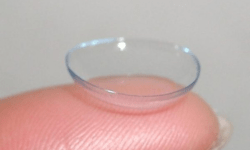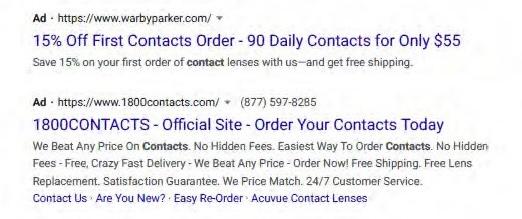This month we’re going to take a look at something really practical: keyword advertising. Keyword advertising is a digital marketing strategy where businesses target specific words or phrases—keywords—relevant to their products or services. The goal is to have advertisements appear in search engine results or on websites when someone searches for or reads content containing these targeted keywords. If you are at all serious about optimizing your presence on the Internet, keyword advertising is an essential tool for attracting traffic to your website.
How it Works
Here’s a short summary of how it works:
1. Keyword Selection
Advertisers choose keywords that are relevant to their offerings. For example, a company selling running shoes might target keywords like “best running shoes,” “buy running shoes online,” or “comfortable running shoes.”
2. Bidding on Keywords:
In many advertising platforms, especially in search engines like Google Ads, advertisers bid on these keywords. The amount they’re willing to pay for a keyword impacts the ad’s placement. Higher bids, combined with factors like ad quality, can lead to better positioning in search results or on web pages.
3. Pay-Per-Click (PPC) Model:
Most keyword advertising operates on a pay-per-click basis, meaning that advertisers pay only when someone clicks on their ad. This model is cost-effective, as advertisers only pay for potential leads.
4. Targeted Ads:
Keyword advertising allows businesses to target their audience with precision. Ads can be customized to show to specific demographics, locations, devices, and more, making them highly effective.
5. Performance Metrics:
Advertisers can track metrics such as click-through rates (CTR), conversion rates, and return on investment (ROI) to evaluate the success of their campaigns and refine their strategies.
Okay, how is this relevant to intellectual property? It may be very relevant. For example, if you were to bid on a keyword that is another competing business’ trademark, the question of whether you are liable for trademark infringement is a reasonable concern. Let’s take an example. Say you sell athletic shoes and you purchase the keyword for “Nike.” Will the Nike Corporation send you a cease and desist letter because you are “guilty” of attracting customers to your website using Nike’s trademark and goodwill? Can you even do that? Is that trademark infringement? All good questions. In fact, courts have addressed this issue and you may be surprised by the results.
1-800 Contacts v. Warby Parker
In a very recent case, 1-800 Contacts, Inc. v. Jands, Inc. DBA Warby Parker (Warby Parker), the US Court of Appeals for the Second Circuit considered an appeal by 1-800 Contacts on just this very issue. 1-800 Contacts, a leading online retailer of contact lenses, claimed that Warby Parker, a competitor, had deliberately purchased its trademarks, including “1-800 Contacts,” in keyword auctions to mislead consumers searching for 1-800 Contacts. Instead of finding the 1-800 Contacts website, users were shown Warby Parker’s paid ads. These ads, according to 1-800 Contacts, were ambiguous and designed to confuse consumers into believing Warby Parker was affiliated with or endorsed by 1-800 Contacts. Customers clicking on these ads were directed to a landing page on Warby Parker’s website that had similar color and layout to 1-800 Contacts’ website, which, according to 1-800 Contacts, created actual confusion.
1-800 Contacts sued Warby Parker for trademark infringement and unfair competition under federal and state law. The trial court granted Warby Parker’s motion for judgment on the pleadings, a ruling that is based solely on the contents of the pleadings (the complaint and answer) without proceeding to a trial. That court determined that Warby Parker did not create a likelihood of confusion in its “use” of 1-800 Contacts’ trademarks or the design of its website. 1-800 Contacts appealed to the US Court of Appeals for the Second Circuit.
The Court of Appeals held that to sufficiently state a claim of trademark infringement, a plaintiff must show that the mark is protected, i.e. registered, and that the defendant’s use of the trademark would “likely cause confusion” as to the origin, sponsorship, or affiliation of the defendant’s goods with plaintiff’s goods. Without going into the details of the Court’s reasoning, suffice to say that the Court of Appeals acknowledged that it is standard practice for businesses to bid on competitor’s trademarks during search advertising auctions. In the Court’s words, it is “a permissible and standard industry practice.” Indeed, 1-800 Contacts conceded that there is no prohibition on this type of advertising. Thus, the “mere act of purchasing a competitor’s trademarks as keywords in the search advertising context does not constitute trademark infringement or unfair competition.” So there you have it; using a competitor’s trademark for search purposes is not infringement.
The story does not end here, however. 1-800 Contacts also alleged that Warby Parker lured 1-800 Contacts’ customers by presenting them with deceptive advertisements in the search results, which resulted in “actual confusion.” The District Court didn’t buy that argument and the Court of Appeals affirmed. The Google search Ads displayed as a result of using the 1-800 Contacts keyword, according to the Court, were not confusing, were clearly labeled “Ad”, and clearly directed the user to Warby Parker’s website:
Most importantly, whether consumers were actually confused by the color scheme and placement of the text in Warby Parker’s website thereby believing they were purchasing 1-800 Contacts lenses was never proven by 1-800 Contacts. Typically, to demonstrate actual confusion, a trademark owner is required to present evidence in the form of customer survey data. 1-800 Contacts presented no such data.
The Warby Parker case is a good example of the law in most federal circuits. We urge you to review the case to learn more about relevant legal precedent. The bottom line is that it is okay to purchase a competitor’s trademarks as keywords for purposes of search. But once you have directed a potential customer to your website, it is not okay to confuse them as to whose product they are purchasing. If you believe a competitor is infringing your trademark in this way, Warby Parker teaches us that you have to have the data to prove actual confusion.
— Adam G. Garson, Esq.



